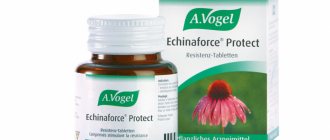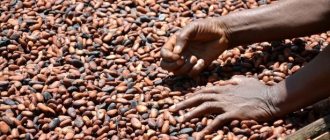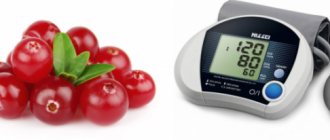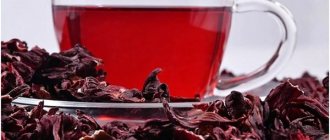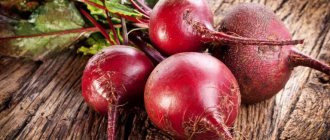Medicines interact not only with each other. One of the food products that gives potentially dangerous combinations with a large amount of drugs is grapefruit and its juice. This property of grapefruit should not be underestimated, since in some cases reactions can develop even fatal! Knowing how and with what medications grapefruit interacts is critically important for pharmacists and pharmacists.
Principle of interaction
Grapefruit juice is a powerful inhibitor of one of the most important enzymes of the cytochrome P450 system - CYP3A4, which is involved in the life cycle of up to 60% of drugs [1]. The furanocoumarins contained in grapefruit and, to a lesser extent, flavonoids (naringin, bergamottin and others) are responsible for this. Other citrus fruits have the same property: pomelo, bitter varieties of oranges, lime - that is, those that are related to grapefruit and also contain furanocoumarins [2].
Sweet oranges, tangerines, and lemon do not have this effect. The inactivating effect of grapefruit is on CYP3A4, which operates in the intestine. However, consuming grapefruit or its juice in large quantities can lead to a decrease in the concentration of CYP3A4 in the liver. Furanocoumarins in grapefruit juice block the enzyme irreversibly, so intestinal cells need time to reproduce it. After a glass of grapefruit juice or one fruit eaten, it takes 72 hours for the enzyme activity to return to its original level. Within 24 hours, CYP3A4 enzyme activity is restored by 50%. Therefore, an interval of even a few hours between taking the medicine and grapefruit juice will not make sense.
The effects of grapefruit juice on CYP3A4 have been well studied. In addition to CYP3A4, grapefruit can suppress CYP1A2. This explains the increased effect of caffeine. There is evidence of its effect on isoenzymes of the cytochrome system.
Weaken and enhances the effect
Grapefruit can affect drug metabolism in two ways:
- If a drug is metabolized by an enzyme to inactive compounds (this is most drugs), then taking it together with grapefruit will help increase the concentration of the active substance in the blood. Consequently, this will lead to the appearance or intensification of its side effects and even toxic effects on the body - severe adverse drug reactions (ADRs). For example, grapefruit juice can increase the concentration of simvastatin by 9 times! And this is fraught with an increase in such common serious side effects of statins as myopathies, which can manifest from mild myalgia to fatal rhabdomyolysis, in which muscle tissue is destroyed with the development of acute renal failure [3]. Let us recall that with the usual regimen of taking statins, fatal rhabdomyolysis accounts for 1.5 deaths per 10 million medical prescriptions.
- If a drug is converted to an active metabolite by CYP3A4 cytochromes, inhibition of the enzyme will reduce the effectiveness of the drug. Examples include combining grapefruit juice with clopidogrel and losartan. Simultaneous use with cyclophosphamide will lead to the same result.
- Additional mechanisms of action of grapefruit juice are associated with the effect on the work of transporter proteins: it reduces the activity of P-glycoprotein (P-gp) and organic anion transport polypeptides (OATP-A, OATP-B), while increasing the activity of OATP-C. All these transporter proteins prevent the entry and promote the removal of xenobiotics and drugs from the blood. These additional mechanisms can be combined with each other and with effects on CYP3A4 and ultimately produce different effects: the bioavailability of the drug increases or decreases.
One additional mechanism is associated with the loss of effectiveness of the antiallergic fexofenadine when taken with grapefruit juice, although it is not a substrate for the CYP3A4 enzyme. If the pharmacokinetics of a drug is only with additional mechanisms of action of grapefruit, then a break of 4 hours between taking the fruit and the drug will be enough to ensure that the interaction does not occur.
High risk of interaction
More than 85 drugs in combination with grapefruit can cause serious adverse reactions. And 43 drugs can potentially lead to fatal consequences [4]. Moreover, whether grapefruit juice will affect the pharmacokinetics of a drug depends not on the group affiliation, but on whether the drug is a substrate for the CYP3A4 enzyme or transporter proteins. Grapefruit juice only affects oral forms of medications that are absorbed in the small intestine.
Clinically significant combinations with a high and very high risk of interaction with grapefruit juice occur in:
Statins : lovastatin, atorvastatin, simvastatin up to fatal rhabdomyolysis. At the same time, grapefruit juice has no effect on pravastatin, rosuvastatin, fluvastatin .
Antineoplastic drugs such as crizotinib, dasatinib, erlotinib, everolimus, lapatinib, nilotinib, pazopanib, sunitinib, vandetanib, venurafenib - myelotoxicity (damage to bone marrow cells involved in hematopoiesis) and increases the risk of life-threatening disorders of the blood. Together with everolimus there is a risk of myelotoxicity, with erlotinib - myelotoxicity and nephrotoxicity.
In combination with
Erythromycin - “pirouette”, increased nausea, vomiting, diarrhea;
Amiodarone - prolongation of the QT interval, ventricular arrhythmias, including pirouette type;
Apixaban - gastrointestinal bleeding;
Ergotamine - gangrene, stroke;
Ticagrelor - gastrointestinal, renal bleeding;
Verapamil - marked decrease in blood pressure, atrioventricular block;
Dextromethorphan - hallucinations, drowsiness;
Domperidone - “pirouette”;
Cyclosporine, tacrolimus - nephrotoxicity, acute renal dysfunction;
Clopidogrel - loss of effectiveness.
Beneficial features
The multicomponent composition of citrus fruits has a wide range of therapeutic effects. The main effects of grapefruit and the mechanism of development are presented in the table.
| Effect | Implementation method |
| Correction of metabolic disorders | Naringin (active component of the peel and fibrous membranes of the fruit):
The action is used to correct body weight in obese people |
| Hypoglycemic (sugar-lowering) |
Used in diet therapy for diabetes mellitus. |
| Cardioprotective (“heart protection”) |
|
| Sedative (calming) | Aromatic oils in the peel of the fruit are used in the complex treatment of depression, neuroses and asthenic conditions with severe weakness and fatigue. Grapefruit baths are considered the most effective |
| Tonic | Vitamins and minerals from citrus juice have general strengthening properties and improve the condition of skin, hair and nails. |
Additional benefit
Doctors pay attention to the following beneficial qualities of citrus fruits:
- For teeth – regular consumption helps strengthen gums and molars, and prevent some dental diseases. In case of bleeding, fruit juice is needed, which will additionally help destroy bacteria that provoke the development of caries and unpleasant odor from the mouth. The fresh drink easily copes with many microbial and fungal pathogens.
- Anti-cancer – active components prevent the formation of malignant tumors. Prevention of tumors occurs due to the antioxidants contained.
- To lower cholesterol levels, citrus fruit components increase the acidity of gastric juice. One of the substances contained, naringin, is a stimulant of the digestive system, helping to get rid of harmful cholesterol and toxins.
- Against kidney stones – citric acid destroys oxalates formed in the organ. Additionally, the element increases the alkalinity of urine, which is a secondary prevention of the occurrence of urolithiasis.
- To reduce cellulite, the bromelain contained in the composition causes the destruction of lipid deposits, from which the “orange peel” is formed.
Grapefruit components have a positive effect on the functionality of the nervous system. They allow you to overcome stress and depression.
Composition of juice and indications for its use
The chemical composition is due to the hybrid origin of grapefruit, in which the components of orange and pomelo are determined. Beneficial substances of citrus juice:
ascorbic acid (vitamin C);- nicotinic acid (PP);
- thiamine (B1);
- biotin (B7);
- cholecalciferol (D3);
- retinol (vitamin A)
- macro- and microelements (sodium, magnesium, calcium, potassium);
- organic acids;
- naringin;
- pectin (fiber);
- essential oils.
Red grapefruits have the highest concentration of active components.
Indications and contraindications for consuming the fruit for therapeutic purposes are presented in the table.
| Indications | Contraindications |
|
|
It is not recommended to take medications with grapefruit juice, since citrus components reduce the activity and distribution of drugs.
How does grapefruit affect blood pressure?
The hypotensive effect of grapefruit is realized by:
- reducing excess body weight (obese people have a high risk of developing hypertension);
- normalization of the blood lipid spectrum (atherosclerotic plaques are one of the factors of arterial hypertension);
- prevention of cardiovascular pathology.
The therapeutic effects of individual components of grapefruit juice are presented in the table.
| Active substances | Impact on the body |
| Naringin (metabolized into naringenin) | Normalizes fat metabolism and helps eliminate excess cholesterol. |
| Nicotinic acid (vitamin PP or B3) |
|
| Ascorbic acid (vitamin C) |
|
| Essential oils |
|
Grapefruit juice has diuretic properties (removes excess fluid from the body), and therefore reduces blood pressure.
Is it possible to eat fruit if you have hypertension?
Grapefruit affects blood pressure through the main risk factors, which is characterized by a complex and safe effect on pathology. Therefore, citrus fruits are actively prescribed in the diet of hypertensive patients.
However, the active components of the fruit are not enough to treat the disease. The drug is not used for hypertensive crises or complicated types of hypertension. The effectiveness of grapefruit is based on a combination with traditional pharmacological methods of blood pressure correction.
If objective symptoms appear (pain in the back of the head, dizziness, rapid heartbeat), it is necessary to consult a doctor and prescribe drug therapy.
Reception features
It is necessary to use grapefruit for blood pressure after consulting a specialist to exclude contraindications and compatibility with concomitant therapy.
Rules for safe and effective consumption of fruit:
- For the purpose of treating or preventing cardiovascular diseases, it is recommended to consume 1 fruit daily.
- You can replace the fruit with 1 glass of freshly squeezed juice with pulp (“fresh”). To reduce bitterness, it is recommended to add 1 tablespoon of honey.
- Patients with sensitive tooth enamel need to drink juice through a straw.
- The fruit is consumed after meals, since the extractive substances of the fruit cause irritation of the mucous membrane.
- Patients with reduced secretory function (hypoacid gastritis) are recommended to drink juice on an empty stomach.
- Grapefruit should be prescribed with caution to pregnant women, nursing mothers and children due to the risk of allergic reactions. Start with small portions of the fruit (1 slice), gradually increasing the dose.
- If signs of hypersensitivity appear, you should stop taking the fruit.
The combination of grapefruit, medications and herbal medicines that lower blood pressure enhances the effectiveness of therapy.
Grapefruit and medications: an unpleasant surprise
Juices, especially freshly squeezed ones, have always been considered extremely healthy. Lots of vitamins, microelements - and everything is natural without any “chemicals”! But any plant, even grown in environmentally friendly conditions, is still a biochemical laboratory of nature, which is capable of presenting surprises.
Everyone knows that medications can interact with other foods they consume. But most often scientists are interested in the problem of compatibility of drugs and alcohol.
So, once a group of pharmaceutical scientists from the University of Western Ontario studied the question of how compatible blood pressure medications (calcium channel blockers) and alcohol are. To prevent psychological factors from influencing the results of the experiment, they decided to mask the taste of alcohol with white grapefruit juice. And unexpectedly it turned out that pure juice caused much more side effects and signs of overdose than alcohol.
What's so "bad" about grapefruit?
There's nothing wrong with it. Almost all substances that can affect the use of medications have a positive effect on the body, but together with medications they can play a cruel joke. Among these substances:
- Furanocoumarins.
They block the work of one of the most important enzymes, thanks to which a large number of drugs are metabolized. As a result, more medications enter the bloodstream than they should, and they have a toxic effect on the body. It takes 72 hours after eating grapefruit for this enzyme to function properly again. - Flavonoids.
They also block a number of enzymes that are responsible for processing drugs in different organs. Metabolism of drugs slows down. As a result, an increased concentration of drugs accumulates in the body. - There is still an unknown component that blocks the so-called P-glycoprotein, which is responsible for “cleansing” cells of unnecessary foreign substances: for example, it “throws” excess drugs out of the cell. If P-glycoprotein does not work well, then high concentrations of drugs accumulate in the cell, which can become toxic.
How much grapefruit is enough?
Surprisingly, not so much. If you take freshly squeezed juice, then to change the functioning of enzymes and disrupt the metabolism of drugs, it is enough to drink a little more than a glass.
It should be noted that the indicated dose is calculated approximately, because there are many additional factors on which the effect of the juice depends. Age, heredity, and also whether the person took some food with the juice or drank it on an empty stomach are important.
The type of medication also plays a big role. If, when treating with a specific drug, the exact dose is very important and deviation from it may negatively affect the patient’s condition, then grapefruit may cause more undesirable reactions.
What medications is grapefruit juice incompatible with?
Currently, 85 drugs are known. Among them:
- tranquilizers benzodiazepines (Phenazepam, Diazepam, etc.);
- antiepileptic drugs (Carbamazepine, Lamotrigine);
- statins - drugs that lower cholesterol (Lipitor, Mevacor, Zocor);
- antiarrhythmic (Cordarone);
- antimigraine (Ergotamine);
- drugs for erectile dysfunction (Viagra, Cialis);
- paracetamol;
- antiallergic (Fexofenidine);
- Omeprazole
and others.
Should I give up grapefruit?
There are undoubted grapefruit lovers for whom giving up their favorite fruit would be, although possible, very sad. Fortunately, pharmacologists believe that such sacrifices are not necessary. You should only eat these fruits or drink juice 4 hours before taking medications.
It is possible that grapefruit juice will not have such an adverse effect on you at all, but it is nevertheless best to be aware of this possibility.
Some fruits contain the same substances as grapefruits, but in lower concentrations. Among them are apples, oranges, pomelo. Therefore, pharmacologists warn that it is better not to take medications with juices at all.
Natalia Stilson
Photo thinkstockphotos.com
Products by topic: [product](Phenazepam), [product](Carbamazepine), [product](Lamotrigine), [product](Zocor), [product](Cordarone), [product](Ergotamine), [product]( paracetamol), [product](Omeprazole), [product](Cialis), [product](Viagra)

